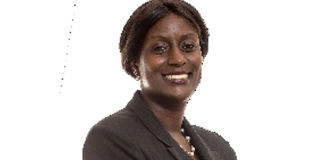Prime
Is CSR career guidance ideal?

Caroline Mboijana
What you need to know:
This is an exciting program that can make an impact in building the next generation of responsible working adults. Please advise how to set up the program for implementation.
Dear Caroline,
My organisation recently developed a corporate social responsibility program focused on working with schools to support young learners in thinking about their careers as they complete their academics. This is an exciting program that can make an impact in building the next generation of responsible working adults. Please advise how to set up the program for implementation.
Sheilah
H ello Shelia, this sounds like an inspiring program that can be impactful and gratifying if set up correctly. This question may have to be answered in two parts, so allow me to share the first part of your question.
Your program must incorporate many stakeholders, including parents, training institutions or community partners who can all contribute to your success. The first thing you need to think about is what you are trying to achieve with this program. Recent challenges and discussion points focus on how we help young learners identify what they enjoy and are good at while balancing the need to complete the foundation’s aspects of learning as guided in their school curriculum. Many of them only start thinking about their careers when they get to select their A-level subjects. An alternative thought on the table is that maybe the career discussion should start sooner, and they should be allowed to discover what they would like to be at an earlier stage. If this is the right way forward, your program can be of significant value.
You can identify the schools your organisation would like to work with. These should not be too many; your first program should start small and grow based on your success. Your program structure and format should be informed by data and research collected from primary and secondary sources, a combination of national statistics of the most popular professions sought after by graduates and asking young learners still at school what professions they want to pursue. This way, your program not only focuses on those ‘popular’ careers but also those that were previously perceived to be ‘secondary’. Do not forget to discuss with parents and school management to ensure their views and perspectives are also considered in your program set-up.
Using this data then allows the structuring of a program based on the needs of your audience and stakeholders. Once you have this information, you can think about what activities will be included in the program; who will run the activity; how often the activities take place, including when and where; and which other stakeholders and partners will join you on the program. Many
organisations are now supporting the youth to think about their skills, and many help them develop their skills early. This initial stage is all about the research. It may take some time to complete, but it s the foundation for implementing a successful program.
Next week I will continue with phase 2.
Caroline Mboijana,
Managing Director, The Leadership Team (U) [email protected]



